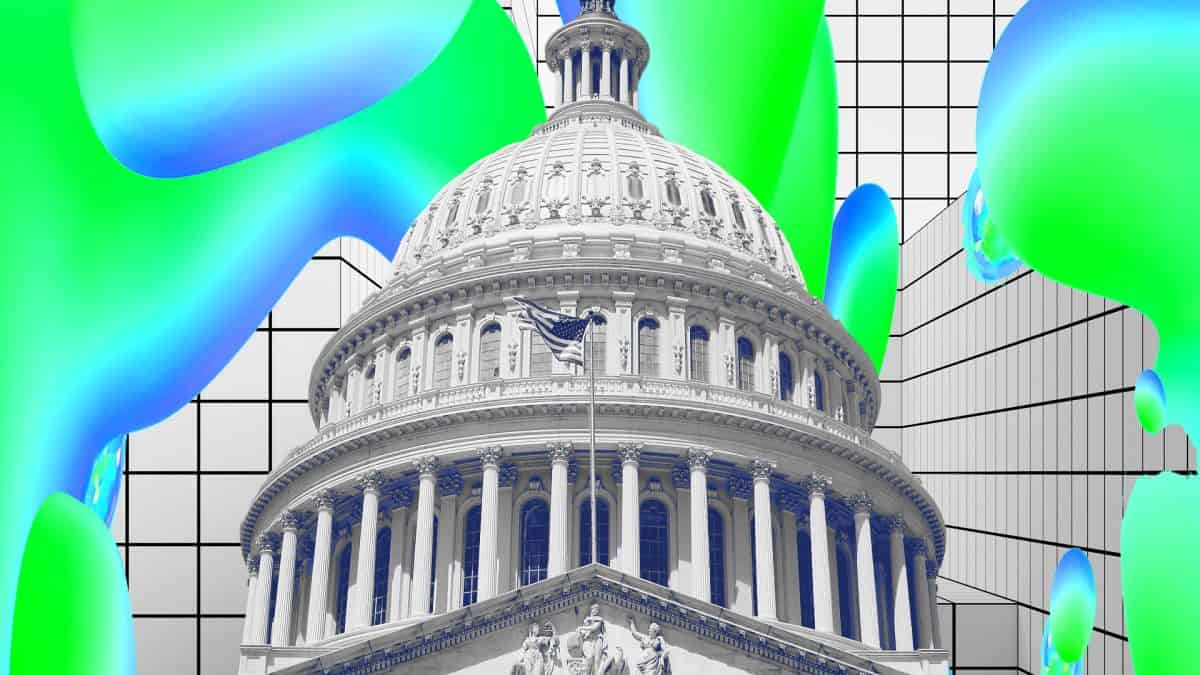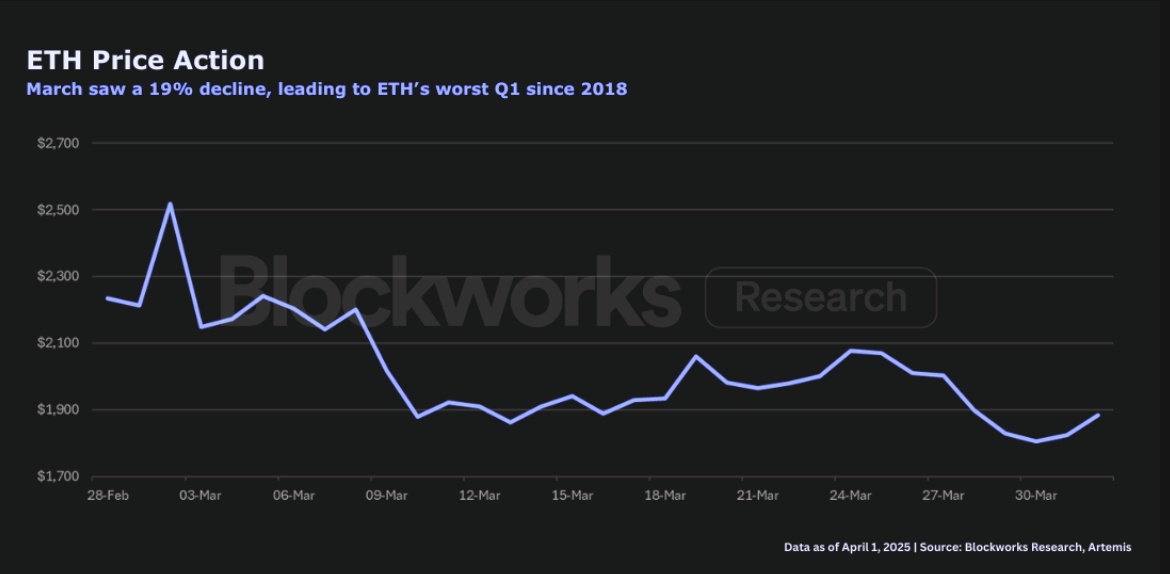House Financial Services Committee votes to advance bill to regulate stablecoins
Quick Take The stablecoin bill faces potential challenges, including from President Donald Trump himself, given his family’s involvement in crypto. Multiple amendments were brought on Wednesday focused on Trump’s ties to crypto and potential bailouts. As for next steps, lawmakers could decide now to move forward with legislation to regulate crypto as a whole, a Republican aide familiar with the bill text said in a press call last week.

The House Financial Services Committee voted to advance a monumental bill to regulate stablecoins on Wednesday.
The bill, called the Stablecoin Transparency and Accountability for a Better Ledger Economy, passed out of that committee on Wednesday with 32 in favor and 17 opposed.
House Financial Services Committee Chair French Hill, R-Ark. urged the bill's passage during a several hours-long hearing and said regulations was essential for "global competitiveness."
"Blockchain technology continues to transform the way money moves," Hill said. "The fact is, policymakers, regulators and law enforcement must keep up with these changes."
Hill and Rep. Bryan Steil, R-Wis., last week introduced the bill, shortened to STABLE, that would create a framework for dollar-denominated stablecoins. The bill has reserve and capital requirements, including a one-to-one backing and anti-money laundering standards.
This marks another attempt from the House committee to advance a bill to regulate stablecoins. In 2023, the panel passed the legislation, but its likelihood of becoming law was put in doubt after talks stalled amid criticism from Republicans that the White House, under the Biden administration, was to blame.
Multiple amendments were discussed on Wednesday focused on Trump's ties to crypto, bailouts and foreign issuers.
Both the Senate and House will have to come to a consensus on their bills. Both have differences in how issuers are regulated at the state and federal levels. They also differ in how foreign issuers like Tether will be regulated.
For example, the STABLE bill has a two-year provision which would essentially mean that a foreign issuer, like Tether, could offer its stablecoin on a U.S. exchange after the bill is passed, but after the two years are up, that foreign issuer would have to be subject to a comparable regime as the U.S. or comply with the U.S.'s rules.
The GENIUS Act is different and prohibits foreign issuance in the U.S. but allows stablecoins that are foreign-issued to circulate on the secondary market in the U.S. The Senate version also has language on allowing the Treasury to take action against foreign issuers.
Stablecoin bills face other potential challenges
During a press call on Monday, Hill alluded to President Donald Trump's involvement in crypto as a potential thorny issue. The Trump family has been involved with a DeFi protocol under development as well as live and tradable memecoins and NFTs. On Monday, the Trump family also announced its new Bitcoin mining interests.
That engagement "in the memecoin activity and in considering the formation of a stablecoin have made our work more complicated," Hill said. As the Trump family gets further entangled with the industry, many lawmakers are raising questions about potential conflicts of interest.
Top Democrat of the House Financial Services Committee Maxine Waters, D-Calif., quickly opposed the bill on Wednesday, raising concerns over President Donald Trump's involvement in crypto.
"With this stablecoin bill, this committee is setting an unacceptable and dangerous precedent, validating the president and his insiders' efforts to write rules of the road that will enrich themselves at the expense of everyone else," Waters said.
On the Senate side, the Senate Banking Committee voted in March to advance their version of a stablecoin bill called the "Guiding and Establishing National Innovation for US Stablecoin" or GENIUS Act for short.
Whether stablecoin legislation should allow interest on stablecoins has also been debated. Coinbase CEO Brian Armstrong posted on Monday that the government "shouldn't put its thumb on the scale to benefit one industry over another."
"Opening the door for onchain interest will force us all to up our game for the ultimate benefit of consumers, and will keep this innovation onshore," Armstrong said.
Hill said there had been a consensus on Capitol Hill on that provision over the years.
"That was just a consensus that's been established on both sides of the Hill," Hill said on Monday. "And it's not really more complicated than that."
As for next steps, lawmakers could decide now to move forward with legislation to regulate crypto as a whole, a Republican aide familiar with the bill text said in a press call last week. The House Financial Services Committee is slated to hold a hearing on a market structure bill next week.
Steil told reporters during the call on Monday that he views the bill and the one on stablecoins as "linked." Steil said President Trump is interested in having both market structure and stablecoin bills on his desk as soon as possible.
"I view them as peanut butter and jelly and together you have a sandwich," Steil said Monday. "I think they're both essential pieces of the puzzle and I think we're in a position to be able to deliver on that."
Dante Disparte, chief strategy officer at stablecoin issuer Circle, pushed for the STABLE Act to be passed ahead of Wednesday's hearing. Circle filed for an initial public offering on Tuesday.
"The U.S. will win, when payment stablecoins that reference the dollar have a clear pathway to enter into the United States' regulatory perimeter," Disparte said in a post on X.
Disclaimer: The content of this article solely reflects the author's opinion and does not represent the platform in any capacity. This article is not intended to serve as a reference for making investment decisions.
You may also like
Honda prepares to send its hydrogen tech to space
Share link:In this post: Honda is working with Sierra Space and Tec-Masters, two space technology companies, to try their high-differential pressure water electrolysis system. Honda aims for hydrogen to help it get all of its cars off carbon by 2040. Honda says it will work with NASA to get the equipment to the ISS on Sierra Space’s Dream Chaser space plane.
ETH just had lowest quarterly return since Q2 2022: Blockworks Research
The network is at a “pivotal juncture,” Blockworks Research’s Marc-Thomas Arjoon said

Riot Platforms Hits Post-Halving Bitcoin Production High as It Expands AI Capacity
Solana Price Pattern Points to a 65% Surge as Key Metric Beats Ethereum by Far
